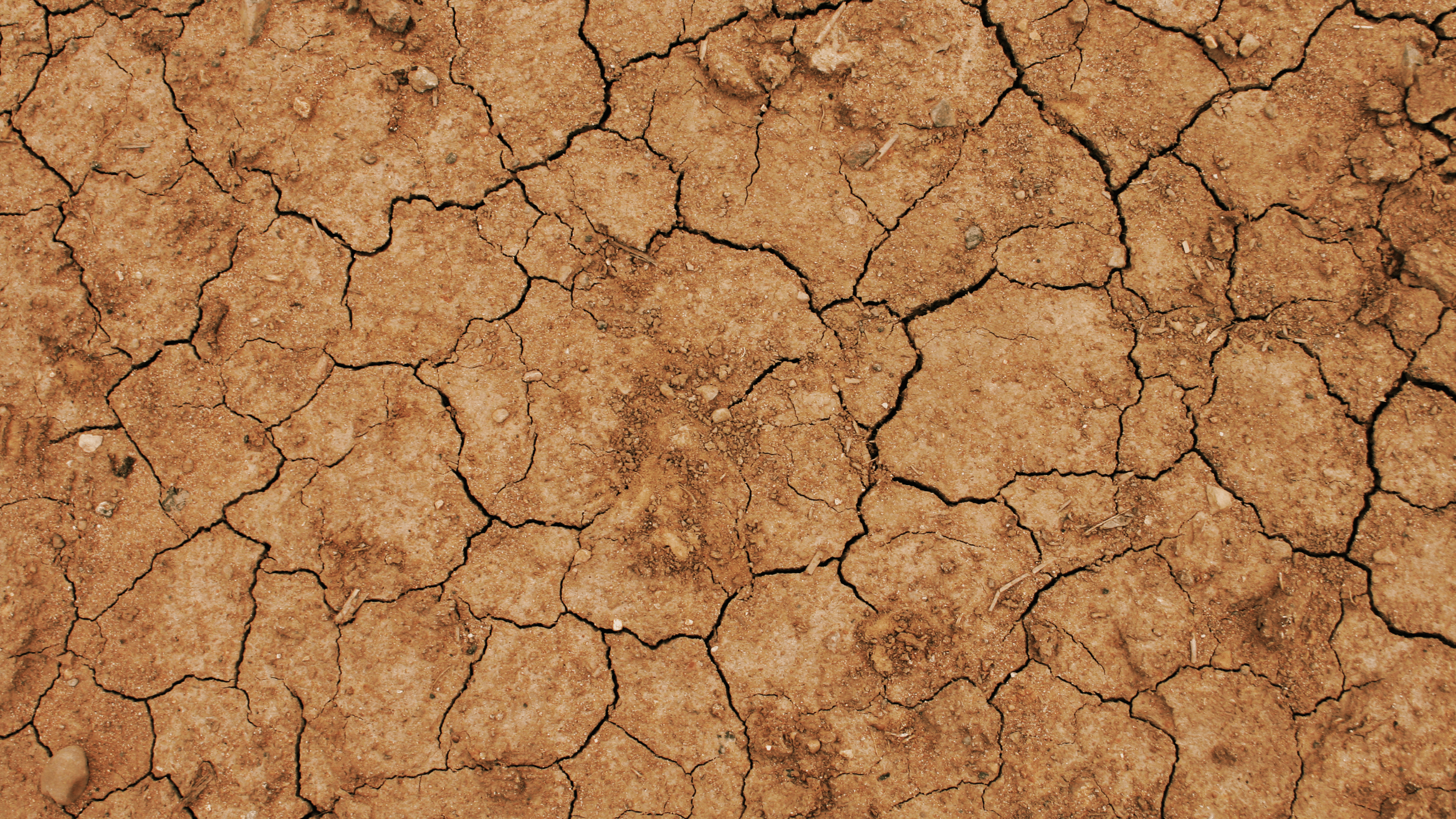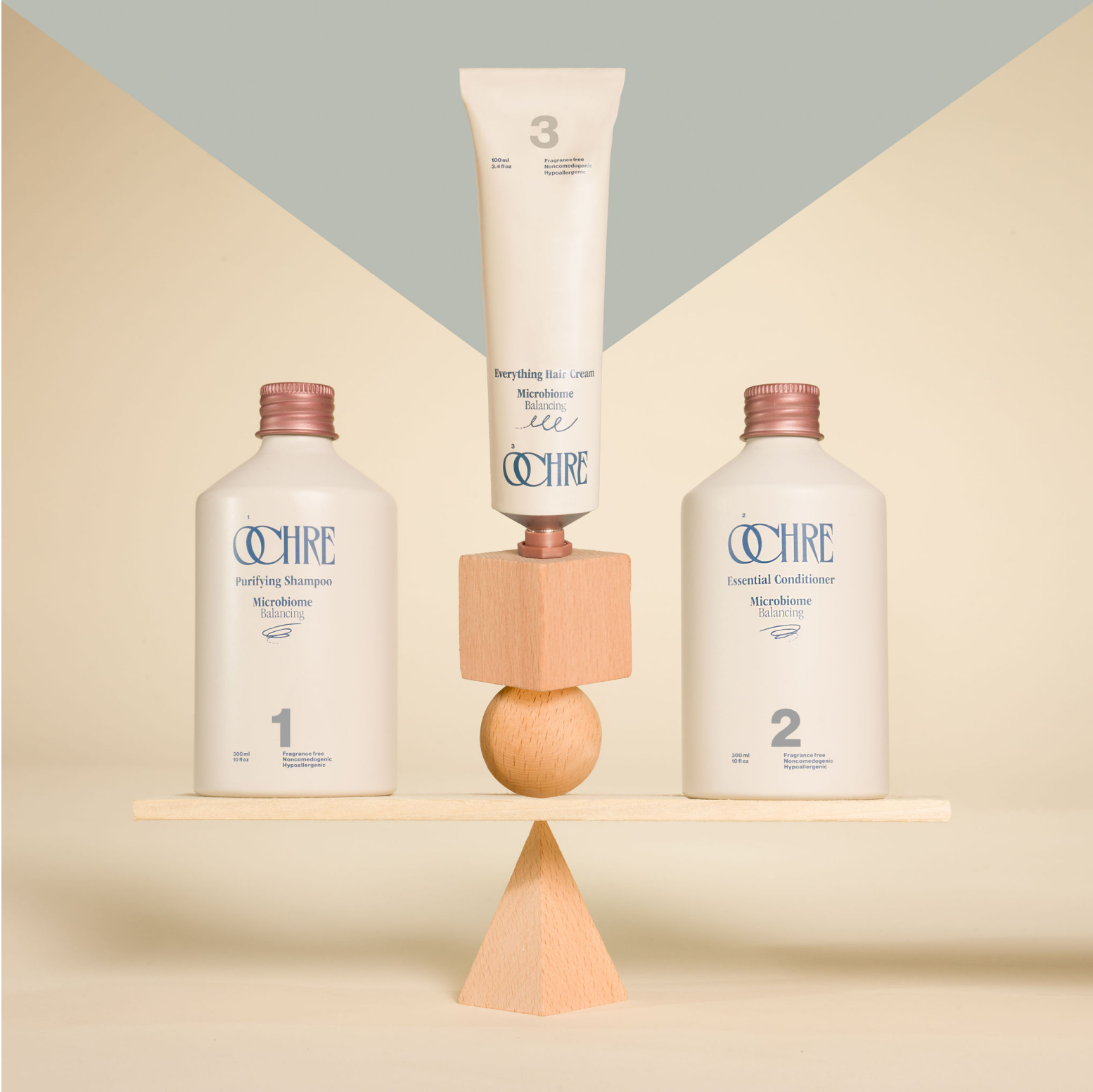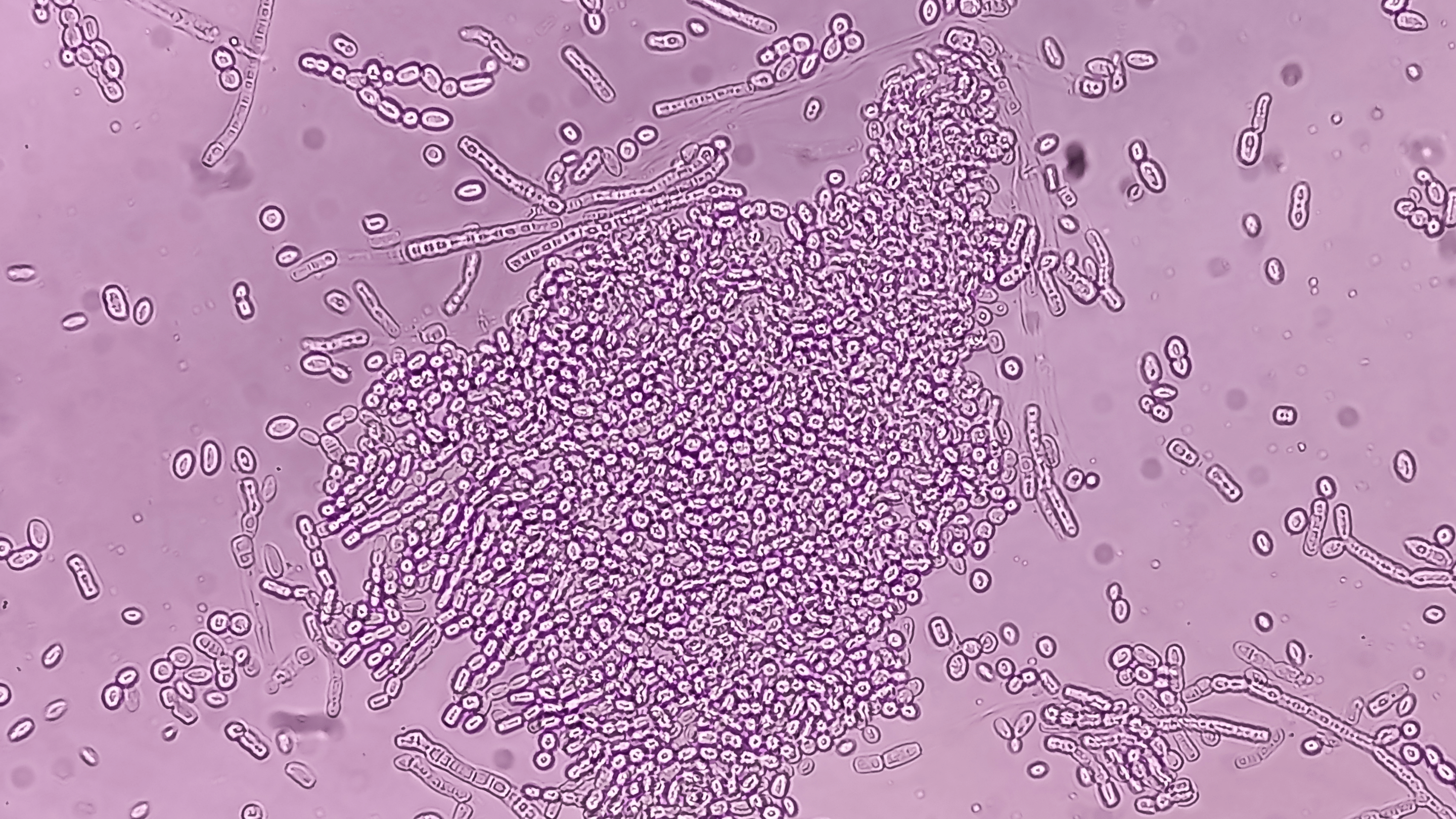
Your Guide to Eczema
Reviewed by Dr. Rishu Gupta, MD, and Valerie George, Cosmetic Chemist
Red, itchy rashes. It can pop up anywhere – on our scalp, face, neck, arms, hands, torso, and feet. It can be painful, embarrassing, stressful, and frustrating to deal with.
Eczema is the catchall name used for conditions that can cause those red, itchy rashes. It affects 9.8% of children and 10.2% of adults in the US, with both numbers most likely being higher due to unreported cases.
Navigating how to treat eczema can feel like a lifelong journey. The condition is still not fully understood, can appear at any time, and be triggered by multiple sources.
In this guide, we will help you understand what eczema is, what causes it, what the symptoms are, and how you can manage it.
What is eczema?
Eczema is a chronic inflammatory skin condition. It is triggered by allergens or irritants that enter the body or contact skin, causing an immune response that leads to inflammation.

Outbreaks of eczema are typically referred to as “flare-ups” and are not contagious. Symptoms include:
- Redness
- Itchiness
- Swelling
- Dry, cracked skin
- Scaling
- Oozing or crusting
There are 7 types of eczema summarized in the table below.
Type |
Description |
Typical Symptoms |
Who it affects |
|---|---|---|---|
| Atopic Dermatitis | Chronic inflammatory skin condition. Most common form of eczema | Itchy, red, and inflamed skin that can ooze or bleed when scratched. Constant itching can lead to skin becoming hardened/thickened. | Anyone. Might be linked to a mutated gene that causes a weakened skin barrier. |
| Contact Dermatitis (read here to learn more about contact dermatitis from personal care products) | Skin reaction due to contact with irritants or allergens. | Redness, itchiness, swelling, blisters, and photosensitivity at the site of contact with the irritant or allergen. | People who come in contact with irritants frequently, such as nurses, hairdressers, and janitors, or people with allergies. |
| Seborrheic Dermatitis | Inflammatory condition affecting sebaceous (oil) glands, typically triggered by excess Malassezia yeast. | Dandruff, patchy scales on greasy skin, dark rashes, and itchiness. Commonly found on the scalp, face, and upper torso. | Anyone, but more common in men. |
| Dyshidrotic Eczema | Characterized by small blisters on hands and feet | Small, itchy blisters on palms, soles, or sides of fingers and toes. | More common in women between ages 20 - 40 . Most likely linked to genetics. |
| Neurodermatitis | Eczema triggered by repeated scratching | Raised, scaly patches on the skin, often localized to a specific area. Itchiness worsens with scratching. | More common in adult women, rarely affects children. |
| Nummular Eczema | Circular or coin-shaped patches of eczema | Coin-like, itchy patches with crusted or scaly skin, commonly found on arms, legs, and torso. | Anyone, but more common in men. |
| Stasis Dermatitis | Occurs in the lower legs due to poor circulation causing water and blood to pool. | Swollen, discolored, and itchy skin on the feet or lower legs. | More common in people over the age of 50. |
What causes eczema?
The exact cause of eczema is still unclear. A combination of genetic and environmental factors most likely plays a role. These factors include:
- Family history of eczema or allergies
- Repeated exposure to irritants or allergens
- Skin barrier dysfunction
- Immune system dysfunction
The skin microbiome also plays a crucial role in eczema. The microbiome is the ecosystem of organisms that live on top of our skin. This includes over 1,000 species of bacteria, fungi, mites, and viruses. Read more about the microbiome here.
A balanced microbiome (meaning a diverse population of microbes) helps keep the skin barrier healthy and regulates the immune system.
An unbalanced microbiome (meaning a less diverse population of microbes) is associated with different skin conditions. Over-colonization of pathogenic (harmful) bacteria and yeast, such as S. aureus and M. restricta, can disrupt the skin barrier and lead to severe skin reactions. A 2023 study links the development of a healthy microbiome to the prevention of atopic dermatitis within the first year of life.

On top of an unbalanced microbiome, there are multiple factors that can trigger an eczema flare-up. Triggers include:
- Harsh detergents
- Allergies
- Cosmetics
- Hormones
- Illness
- Stress
- Weather (temperature, humidity, sunlight)
- Abrasion (including scratching)
How do you manage eczema?
There is no cure for eczema today, but below are 8 tips to help manage eczema.
- Keep your skin moisturized: Regularly apply fragrance-free moisturizers to keep your skin hydrated, which helps maintain the skin's natural barrier. This can help reduce the frequency of flare-ups and make them milder if they occur. Try applying moisturizer on skin that is slightly damp to help lock in extra moisture.
- Gently cleanse: Use mild, hypoallergenic soaps and cleansers when bathing or washing your face. Avoid scrubbing too hard as you can damage your skin barrier.
- Avoid triggers: Identify and steer clear of triggers that worsen your eczema. Patch testing can help identify cosmetic ingredients that cause an allergic reaction for you. Food sensitivity testing can help identify foods that may trigger your eczema. Read here for more information on what type of ingredient to avoid.
- Modify your diet: Incorporate foods that are anti-inflammatory, including fruits, vegetables, and fish. Try limiting inflammatory foods such as dairy, sugar, and white flour. Reduce consumption of alcohol as it can lower your immune system.
- Avoid scratching and friction: Scratching can worsen eczema and lead to infection. If you find yourself scratching in your sleep, consider using gloves at night . Wear loose fitting clothes to help reduce friction on inflamed areas.
- Over-the-counter medications: Antihistamines, such as Zyrtec, Allegra, and Claritin, can relieve itching and help you sleep. Hydrocortisone cream can also offer temporary relief from itching and inflammation.
- Prescribed medications: If over-the-counter remedies don't provide relief, consult a dermatologist for a solution. A dermatologist can prescribe topical creams, oral medications, shampoos, phototherapy, and injectables that help mitigate symptoms.
- Stress management: Stress can trigger or exacerbate eczema. Find ways to destress in your life (I know it’s easier said than done). There is no one answer to reducing stress, so explore and see what works for you.
Conclusion
Eczema can be a frustrating and uncomfortable skin condition, but with the right knowledge and management strategies, you can take more control of your skin and prevent flare-ups. If your symptoms persist or worsen, don't hesitate to seek advice from a dermatologist who can provide personalized treatment options for your eczema.
What we do at OCHRE
We’re a team who has personally experienced the challenges of acne, eczema, and dandruff, and are passionate about creating products that we love and work for us.
Our products are specially formulated to help prevent eczema outbreaks. Our haircare line is:
- Accepted by the National Eczema Association: we formulated and tested our products to meet the rigorous standards set by the National Eczema Association.
- Microbiome balancing: we include our proprietary blend of natural ingredients that effectively clean the scalp and style hair while keeping the scalp’s microbiome in balance.
-
Hypoallergenic: we exclude ingredients that may irritate sensitive skin, including sulfates, parabens, lanolin, fragrances, botanical oils, and dyes.
Sources
- Abuabara K, Magyari A, McCulloch CE, Linos E, Margolis DJ, Langan SM. Prevalence of Atopic Eczema Among Patients Seen in Primary Care: Data From The Health Improvement Network. Ann Intern Med. 2019 Mar 5;170(5):354-356. doi: 10.7326/M18-2246. Epub 2018 Dec 4. PMID: 30508419; PMCID: PMC6548682.
- An Overview of the Different Types of Eczema. National Eczema Association. CD012119. DOI: 10.1002/14651858.CD012119.pub2. Accessed 31 July 2023.
- Nosrati A, Afifi L, Danesh MJ, Lee K, Yan D, Beroukhim K, Ahn R, Liao W. Dietary modifications in atopic dermatitis: patient-reported outcomes. J Dermatolog Treat. 2017 Sep;28(6):523-538. doi: 10.1080/09546634.2016.1278071. Epub 2017 Jan 24. PMID: 28043181; PMCID: PMC5736303.
- Paller AS, Kong HH, Seed P, Naik S, Scharschmidt TC, Gallo RL, Luger T, Irvine AD. The microbiome in patients with atopic dermatitis. J Allergy Clin Immunol. 2019 Jan;143(1):26-35. doi: 10.1016/j.jaci.2018.11.015. Epub 2018 Nov 23. Erratum in: J Allergy Clin Immunol. 2019 Apr;143(4):1660. PMID: 30476499; PMCID: PMC7163929.
- Rapin, A, Rehbinder, EM, Macowan, M, et al. The skin microbiome in the first year of life and its association with atopic dermatitis. Allergy. 2023; 00: 1- 15. doi:10.1111/all.15671
- Silverberg J, Barbarot S, Gadkari A, Simpson E, Weidinger S, Mina-Osorio P, Rossi A, Brignoli L, Saba G, Guillemin I, Fenton M, Auziere S, Eckert L, Atopic dermatitis in the pediatric population: A cross-sectional, international epidemiologic study, Annals of Allergy, Asthma & Immunology, Volume 126, Issue 4, 2021, Pages 417-428.e2
- van Zuuren EJ, Fedorowicz Z, Christensen R, Lavrijsen APM, Arents BWM. Emollients and moisturisers for eczema. Cochrane Database of Systematic Reviews 2017, Issue 2. Art. No.:



